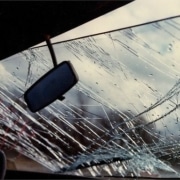What Should I Do Immediately After a Car Accident in Virginia?
Car accidents are traumatic events, and no one’s first thought after a crash is “what can I do to protect my personal injury case?” Some other immediate concerns might be your personal safety and wellbeing, the damage to your vehicle, and what is going to happen to your auto insurance rates.
But if you were injured through no fault of your own, the parties responsible should be held fully accountable for your losses. This is where an injury case comes in, and the steps you take immediately after an accident could have a major bearing on the outcome of your case.
If you’ve been involved in a car accident in Virginia, here are ten things that you’ll want to put at the top of your list. Not only will they keep you out of trouble with the insurance companies, but they’ll also protect your rights to recover full and fair damages.
1. Stay Put. Never leave the scene of an accident, even a minor fender bender. This can be construed as a hit and run, and it will only add to your troubles.
2. Call the Police. It’s always a good idea to call the police even if there aren’t any serious injuries. Having the authorities come to the scene is the best way to get documentation of the accident for your insurance company. Unless vehicles are impeding traffic, leave them where they are until the police arrive.
3. Protect the Scene. It’s a good idea to protect the scene and reduce the chance of secondary accidents by taking a few precautions. If you have them, set out some flares on the road. Keep your flashers going on your car if they still work and make sure that you are in a safe spot.
4. Create an Accurate Record. When giving your report to the police, stick only to the facts. Tell the officer what happened and avoid guessing or speculating.
5. Take Photos. This is a time when you should be taking as many photos of the accident scene and vehicle damage as possible with your cell phone. If you’re injured and unable to do this, ask someone else at the scene to do it for you. If you have visible injuries, take pictures of these as well.
6. Exchange Information. The responding officer will typically obtain all of the relevant information from each driver and witness, but this is something that you should collect as well. Specifically, you want the name, address, and telephone number of everyone involved in the accident, which includes other drivers and passengers. Ask the other drivers about their insurance coverage and ask to see proof of insurance so you can copy down the information or take a picture of the card. It will also be helpful to get contact information from any witnesses while at the scene.
7. Seek Medical Attention. Some accidents are so severe that you may have to leave the scene in an ambulance. Most accidents victims, however, report that they don’t begin experiencing pain and stiffness until a day or two after the crash. Even if the accident was minor, you should seek immediate medical attention to document your injuries and safeguard your health.
8. Report the Accident. You’re required to report the accident to your insurance company as soon as possible according to the terms of your policy. What you don’t have to do, and shouldn’t do, is agree to give the insurance company representative a recorded statement or sign anything that could compromise your rights.
9. Keep a File. Begin keeping your own file related to the accident so that you can stay organized. This should contain your insurance information, pictures, medical reports, and other important documents.
10. Consult with an Attorney. Auto accident cases can be complex, and some of the parties don’t have your best interests in mind. One of the most important things you can do after an accident is to protect your rights by speaking with a qualified car accident lawyer.
Contact the Virginia Auto Accident Attorneys at The Straw Law Firm
If you or someone you love has been injured in a car accident in the Lynchburg area, the experienced personal injury attorneys at the Straw Law Firm are standing by to help. We are a client-focused firm that delivers effective and personalized representation to accident victims and their families.
Our goal is to resolve your case in a manner that is in your best interests, while always pursuing maximum awards for damages from the parties responsible for dangerous and deadly accidents on Virginia’s roads. Contact our office today at (434) 448-2690 to schedule your free initial consultation.



